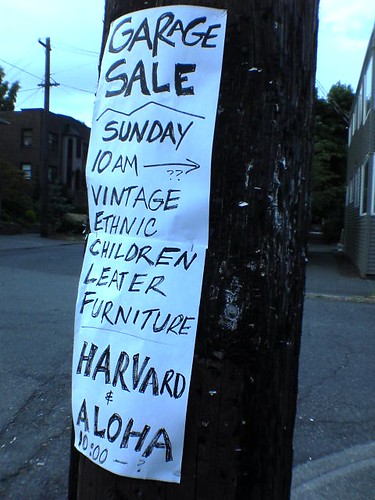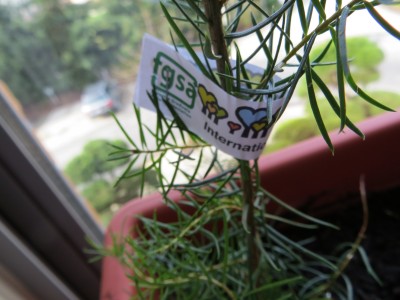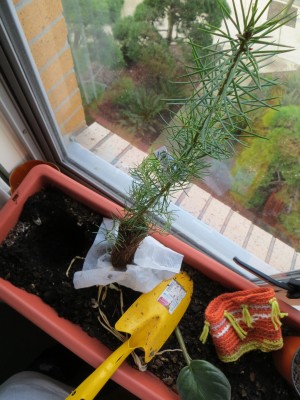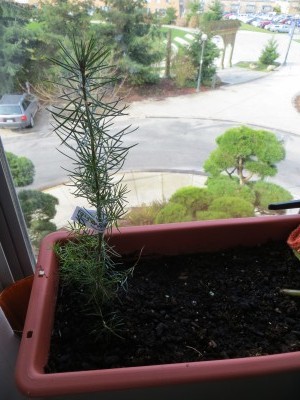Happy New Year everyone!
That’s right. This is the first post I am writing this year, although it’s already February.
As you might have guessed, I recently finished writing my comprehensive exam (a.k.a. comps). You have no idea how happy I am to be typing away on my laptop rather than squeezing my colourful pens trying to write equations in tiniest legible form possible on my cheat sheet.
Some of you may have expected my first iMech post of the year to be filled with complaints about the exam. Don’t worry. That’s on my list of upcoming posts, and will be posted probably after I get my results back (fingers crossed!!).
Anyways, small talks aside, I actually got a question from a prospective grad student regarding UBC residences.
 Now, last year I wrote a post dedicated to UBC housing, but the question from the student made me realize that the post isn’t really helpful when you’re trying to figure out how much you should budget when thinking of moving to campus (in to a studio or a one-bedroom unit where you have the freedom to furnish your own place). I can’t speak for other students, because everyone has different standard of living, and budget in mind. But if you’re thinking about budgeting in the first place, that probably means you have reasons to worry about your finances and belong to the group of most of the grad students I know. If that’s the case, then maybe my story will help — and you might be surprised to find how cheap it is to furnish a place if you just take the time to chill and look around.
Now, last year I wrote a post dedicated to UBC housing, but the question from the student made me realize that the post isn’t really helpful when you’re trying to figure out how much you should budget when thinking of moving to campus (in to a studio or a one-bedroom unit where you have the freedom to furnish your own place). I can’t speak for other students, because everyone has different standard of living, and budget in mind. But if you’re thinking about budgeting in the first place, that probably means you have reasons to worry about your finances and belong to the group of most of the grad students I know. If that’s the case, then maybe my story will help — and you might be surprised to find how cheap it is to furnish a place if you just take the time to chill and look around.
So here it is Student J. This post is for you.
When I was looking into housing for coming to UBC, I had no idea I was supposed to apply for residences way in advance (like now). So I started looking into it around June or July I think, which meant that I’d be put on the waiting list along with thousands of other students who are also on the list (and ahead of me). I decided that it’s not worth waiting for thousands of rooms to free up so quickly, and resorted to a more convenient route. A family friend of mine who was living in downtown Vancouver was moving back to Toronto and wasn’t too keen on taking all her furniture with her. So I conveniently took over her lease and had all the necessities (bed, table, microwave etc) all set up for me when I arrived in the city.
That wasn’t the most affordable solution in terms of rent, mind you. But it was definitely affordable in terms of furnishing the place since I didn’t have to furnish it. When I moved out of the place, of course, I sold the furniture for her so that she didn’t have to fly back to take care of her stuff etc. So it kinda worked out for both of us I think.
I had applied for Thunderbird residences back then and was put on the waiting list for about half a year to a full year before I got an offer. And of course, as soon as the offer came in, I moved in to the campus housing.
Thunderbird VS. Marine Drive
The reason why I had applied for Thunderbird, and not keen on Marine Drive (MD) was that I wanted to live in a studio unit. I’m a really independent person with an interesting daily schedule. So I didn’t want to deal with the whole roommate issue when I take showers at 6am in the morning etc. If you look at the monthly rent for studio units, Thunderbird gives you the most affordable option with larger square feet per unit. While MD studio units may be located at a place overlooking the ocean and comes furnished, it costs a lot more ($965.13/mth for a smaller unit, $1,043.97/mth for larger unit) than Thunderbird studios that don’t come furnished ($855 – $924/mth depending on type of studio you get). Mind you, these rents go up every year, so be sure to check the official website for the latest info (http://www.housing.ubc.ca/residence-fees).
Had I wanted to have roommates, Marine Drive’s 4 bedroom units ($~800/mth/person) would’ve been my first choice. Thunderbird residence’s 4 bedroom units ($670/mth/person) tend to be less well maintained, in my opinion, and the residence community seems to be much less lively than that of MD. It’s to the level that the amount of money you pay extra to be at MD is kinda worth it. Unless you have a few people you’d like to be roommates with, I’d say go for MD if you’re thinking about having strangers as roommates. That’s totally my opinion based on my visit to friends’ places etc.
The Cost of Furnishing an Empty Student House
Now, since Thunderbird’s studio and one-bedroom units do not come furnished. So I practically moved in to an empty house. Luckily, again, one of my labmates at the time was finishing up and was looking for someone to take over his furniture. He had sold a lot of his furniture already, so I got what was left over for free (yes, $0) — an IKEA desk, a chair, a bed frame, and a couple of side tables.
But you can probably imagine that that’s not enough to make a cozy ‘get-away from the lab’ environment necessary for grad students.
The best thing is though, that once you have a place, it doesn’t really matter if you have it furnished right away. As long as you have your blankets and cooking supplies with you, you can live in an empty house for quite an extended period of time.
Luckily — again — one of my supervisor was keeping an eye out for me since he knew that I had just moved in and was looking to furnish my place. After perhaps a few days or weeks (I can’t remember) of living in a barely furnished one-bedroom residence, my supervisor found out that his neighbour was practically throwing away furniture because the elder lady who owned the house had passed away and the house was being torn up for renovation. So, with his help, I brought a couple of my labmates over to the place and got a pull-out bed type couch, two loveseats, a chair, a mattress, and other stuff I can’t remember.
I moved out of the one-bedroom place to a Thunderbird studio unit ever since, but most of the furniture I have is from the previous neighbour of my supervisor and my labmate. I think the only additions I have from then is a desk drawer I got from another grad student for $5, another chair I got for free from a friend, an IKEA coffee table I spent maybe $30-60 on (’cause it’s the only thing I bought brand new), a $20 kitchen table, and the bench I purchased last Fall.
So, I pretty much furnished my place with essentials without costing me anything — I could’ve just gotten a coffee table from someone for $5 instead if I wanted as well.
Now, you are probably thinking, it’s a new city and you don’t really know anyone here. So who’s going to be looking an eye out for you to help you get free furniture?
Even if you don’t know many people here, I don’t think it’d really cost you much money to furnish your place. It’s more of a hassle to furnish it, than it is a drain on your bank account. That’s because most students don’t have a car, and hence think they can’t pick up that free furniture someone is giving away. But if you sign up for Zipcar or other car co-op, and have a valid license, then you can rent out trucks by the hour (about $12/hr or something usually) and can make it work.
 The key is to not worry about furnishing your place all at once. Get what you can, when you can. And monitor Craigslist and Kijiji often. Because there’s always someone in Vancouver who is giving away all their furniture for free or for a couple of hundred $ but those deals go quickly. When you go to these people’s places and buy out their furniture, they’re more than happy to throw in a side table, a lamp, a whole rack of dishes and cups. These people really want to get rid of them asap than to make money off of them. Students often move from places to places as well and most of them would hate to have to throw the furniture out on the curb of a road. They’d rather someone take it off their hands for free. This makes furniture easy and cheap to find. One key ingredient for student furnishing is to have good set of friends though. Be good friends with your labmates or roomates or residence mates. Because when you’re trying to get that free couch out of a stranger’s place, there’s nothing like a couple of extra hands to help you out.
The key is to not worry about furnishing your place all at once. Get what you can, when you can. And monitor Craigslist and Kijiji often. Because there’s always someone in Vancouver who is giving away all their furniture for free or for a couple of hundred $ but those deals go quickly. When you go to these people’s places and buy out their furniture, they’re more than happy to throw in a side table, a lamp, a whole rack of dishes and cups. These people really want to get rid of them asap than to make money off of them. Students often move from places to places as well and most of them would hate to have to throw the furniture out on the curb of a road. They’d rather someone take it off their hands for free. This makes furniture easy and cheap to find. One key ingredient for student furnishing is to have good set of friends though. Be good friends with your labmates or roomates or residence mates. Because when you’re trying to get that free couch out of a stranger’s place, there’s nothing like a couple of extra hands to help you out.
If you can afford to spend more money than just a couple of hundred bucks to furnish your entire place, then IKEA is a student’s friend. But IKEA is actually kind of hard to get to without a car, nevermind the fact that you’d have to carry huge load of stuff back with you or pay for delivery. If you are keen on furnishing your place with IKEA furniture, but not necessarily looking to get brand new furniture, then I’d say walk around campus a bit whenever you have time. Because the boards and elevators and laundry rooms are full of flyers that say “all must go by Tuesday” or “$100 for everything” etc.
Alright, time for me to catch up with some real work. But let me know if anyone has more questions or in need of an insider’s guide to coming to UBC. And good luck with your grad school applications! 😀
 As I cautiously approached them, being highly hesitant what to do, one girl came up to me saying “Would you like a tree?” and handed me Douglas.
As I cautiously approached them, being highly hesitant what to do, one girl came up to me saying “Would you like a tree?” and handed me Douglas. So I did. I am sure the idea is to build, protect, and foster forests, and my planting of the tree at home probably isn’t very helpful.
So I did. I am sure the idea is to build, protect, and foster forests, and my planting of the tree at home probably isn’t very helpful.
 Follow
Follow



 Now, last year I wrote
Now, last year I wrote  The key is to not worry about furnishing your place all at once. Get what you can, when you can. And monitor Craigslist and
The key is to not worry about furnishing your place all at once. Get what you can, when you can. And monitor Craigslist and